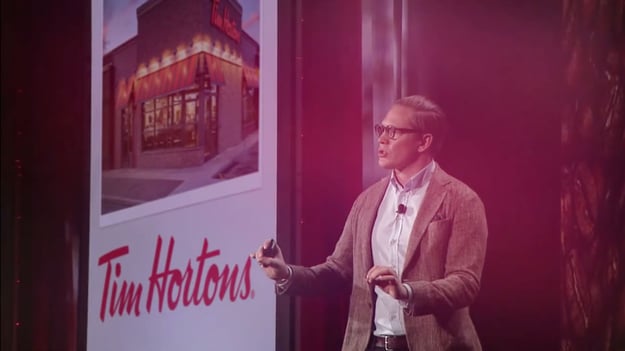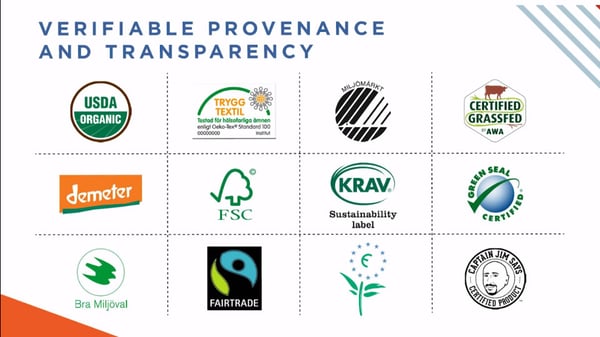Foresights and ideas that expand minds and inspire a change of heart.

All of us – including your clients and customer – are hipsters now. And while your customers perhaps won’t go so far as the classic Portlandia episode and want to visit the farm your business' ‘chicken’ comes from before they eat it for dinner, they do crave digitally verified evidence of an ethical supply chain - something which you can now do courtesy of digital traceability.
The farm to table story is no longer something consumers are demanding only from high-end restaurants and suppliers. They want it from all food brands. According to One Green Planet, a huge 87 per cent of American consumers want to buy food from brands that have a positive social and environmental impact – and, are most are willing to pay more for such products.
Across its global markets, McDonalds is moving towards verified sustainable beef. In Australia, one of our futurist advisory clients - Hungry Jacks - has committed to 100 per cent cage-free eggs - and they really want their customers to know how well their drivers take care of their eggs.

Your customers care about where your products come from – and they want verifiable stories and transparency. This means they won’t just take your word for it. Your customers don’t trust brands anymore. They want digital traceability and independent proof of what sort of brands and companies they are purchasing from – through looking for the Fairtrade logo, for example, on coffee or chocolate products, or the Forest Stewardship Council (FSC) logo on wood or wood-based products.

This is increasingly a story your business can easily tell digitally. Think of the cafe that shares with its customers where they source their coffee beans from – and maybe even the family farm that they come from. Or like the clothing brand Icebreaker, which tells you the full story of their supply chain, from the audit results for their factories to the long-term relationships they have with the farmers who supply their wool.
Consumers are focusing incredibly on what they’re putting in their bellies, but this trend doesn’t only relate to food. Your customers want evidence of an ethical supply chain no matter what you’re selling. Ask yourself how you can take advantage of this trend and weave elements that relate to sustainability and ethically sourced materials into your brand story. And in what way can you provide independent verifiable evidence of your brand’s ethical practices?
For more of my thoughts on how digital traceability will affect the future of food, see my keynote highlights from the Tim Hortons Conference in Las Vegas.
And click below to sign up for my newsletter on future insights and forecasts.

Header Text
Lorem ipsum dolor sit amet, consectetur adipiscing elit, sed do eiusmod tempor incididunt ut labore et dolore magna aliqua. Ut enim ad minim veniam, quis nostrud exercitation ullamco laboris nisi ut aliquip ex ea commodo consequat. Duis aute irure dolor in reprehenderit in voluptate velit esse cillum dolore eu fugiat nulla pariatur.
Lorem ipsum dolor sit amet, consectetur adipiscing elit, sed do eiusmod tempor incididunt ut labore et dolore magna aliqua. Ut enim ad minim veniam, quis nostrud exercitation ullamco laboris nisi ut aliquip ex ea commodo consequat. Duis aute irure dolor in reprehenderit in voluptate velit esse cillum dolore eu fugiat nulla pariatur.
Lorem ipsum dolor sit amet, consectetur adipiscing elit, sed do eiusmod tempor incididunt ut labore et dolore magna aliqua. Ut enim ad minim veniam, quis nostrud exercitation ullamco laboris nisi ut aliquip ex ea commodo consequat. Duis aute irure dolor in reprehenderit in voluptate velit esse cillum dolore eu fugiat nulla pariatur.

Header Text
Lorem ipsum dolor sit amet, consectetur adipiscing elit, sed do eiusmod tempor incididunt ut labore et dolore magna aliqua. Ut enim ad minim veniam, quis nostrud exercitation ullamco laboris nisi ut aliquip ex ea commodo consequat. Duis aute irure dolor in reprehenderit in voluptate velit esse cillum dolore eu fugiat nulla pariatur.
Lorem ipsum dolor sit amet, consectetur adipiscing elit, sed do eiusmod tempor incididunt ut labore et dolore magna aliqua. Ut enim ad minim veniam, quis nostrud exercitation ullamco laboris nisi ut aliquip ex ea commodo consequat. Duis aute irure dolor in reprehenderit in voluptate velit esse cillum dolore eu fugiat nulla pariatur.
Lorem ipsum dolor sit amet, consectetur adipiscing elit, sed do eiusmod tempor incididunt ut labore et dolore magna aliqua. Ut enim ad minim veniam, quis nostrud exercitation ullamco laboris nisi ut aliquip ex ea commodo consequat. Duis aute irure dolor in reprehenderit in voluptate velit esse cillum dolore eu fugiat nulla pariatur.

Header Text
Lorem ipsum dolor sit amet, consectetur adipiscing elit, sed do eiusmod tempor incididunt ut labore et dolore magna aliqua. Ut enim ad minim veniam, quis nostrud exercitation ullamco laboris nisi ut aliquip ex ea commodo consequat. Duis aute irure dolor in reprehenderit in voluptate velit esse cillum dolore eu fugiat nulla pariatur.
Lorem ipsum dolor sit amet, consectetur adipiscing elit, sed do eiusmod tempor incididunt ut labore et dolore magna aliqua. Ut enim ad minim veniam, quis nostrud exercitation ullamco laboris nisi ut aliquip ex ea commodo consequat. Duis aute irure dolor in reprehenderit in voluptate velit esse cillum dolore eu fugiat nulla pariatur.
Lorem ipsum dolor sit amet, consectetur adipiscing elit, sed do eiusmod tempor incididunt ut labore et dolore magna aliqua. Ut enim ad minim veniam, quis nostrud exercitation ullamco laboris nisi ut aliquip ex ea commodo consequat. Duis aute irure dolor in reprehenderit in voluptate velit esse cillum dolore eu fugiat nulla pariatur.
& STAY UP TO DATE WITH FORESIGHTS AND TREND REPORTS!
WE WILL EQUIP YOU WITH THE VIDEOS AND MATERIALS YOU NEED TO SUCCESSFULLY PITCH ASN.
0 Comment